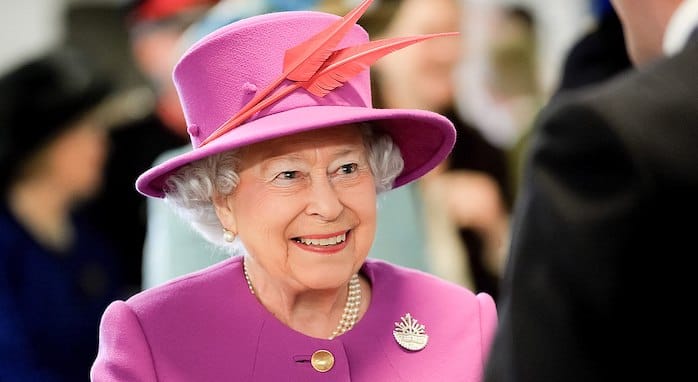First-year law student Michal Smigla explores the obscure feature of our constitution and explains why it should be abolished

The Guardian is on a warpath looking to expose any outdated practices that the monarchy happens to retain. They have recently struck gold after discovering the impact of an archaic convention known as Queen’s consent.
This convention is not a well-known element of the constitution, brushed off as a formality on the Crown’s website. Its significance has been well and severely understated; it has potentially major effects on the way in which the law is passed, and indeed The Guardian discovered that it did shape the law.
In this article we will consider the nature of conventions and then proceed to explore the most pressing question of the month (other than who is Jackie Weaver? And where is Handforth?), this is the question of what is Queen’s consent, and why should we care?
To start off your intellectual meal, a little bit on conventions. Conventions have a major role to play within the UK’s constitutional structure, and have been a longstanding source of our uncodified constitution. Despite this, unlike other sources of our constitution such as ‘constitutional’ Acts of Parliament, a lot of conventions are unwritten. Now, naturally a lot of people, especially outsiders to the UK’s unique constitutional arrangements, would gasp at the thought of having constitutional sources that are entirely unwritten, or at least sources that were originally unwritten. After all, the majority of the world’s legal jurisdictions have codified constitutions. This neatly separates constitutional principles from principles that are less so.
Further, it allows for transparency of the law, which is a key principle of the Rule of Law in that the law should be accessible to all (which is rather important when dealing with constitutional issues). Currently, due to their nature, not everyone is aware of every convention. Such was the case with the Queen’s consent (which is not even covered in public law modules). This convention is described as “a different constitutional beast” by David Allen Green in his blog. He further suggests that it was “hiding in plain sight”. As we shall see in the course of this article, it really is a constitutional beast and should be abolished.
The Queen’s consent is an entirely different form of convention to royal assent, they function entirely independently of each other. Whilst assent is granted after the bill has passed parliament, the Queen’s consent is actually obtained whilst the ‘law’ is still in its early stages, whilst it is still a bill. Essentially, Queen’s consent is the mechanism by which the monarch grants ‘permission’ to parliament to debate the bill. According to the guide published by the Office of the Parliamentary Counsel it seems that the process of obtaining Queen’s consent is relatively simple and straightforward. All that is required is a simple nod by a Privy Counsellor in the House of Commons. In the House of Lords, it’s the same process but the Privy Counsellor actually does it orally. An insignificant procedural difference.
Want to write for the Legal Cheek Journal?
Find out moreWhat is significant, however, is the difference between royal assent and consent. Royal assent is always granted (by convention) and it would be unthinkable for any self-respecting monarch to withhold assent — it would create a major constitutional crisis (and probably lead to some sort of revolt). According to the parliament website, the last time assent was withheld was in 1707 by Queen Anne. Clearly, royal assent has no actual power other than being completely ceremonial. Further, royal assent is very rarely given in-person by the Queen, in almost all cases the Speaker of the House of Commons or Lords would declare that royal assent had been granted.
Queen’s consent on the other hand is an entirely different story: it has actual power to influence legislation (however minor or major), as The Guardian pointed out in several of their investigative reports. This convention was used by the Royal Family to their advantage on several occasions; by the Queen in the 1980s to exempt her from certain disclosure legislation in terms of shareholdings, and by Prince Charles, who has used his power of consent over many years, starting in 1967, and most recently in 2002 with the Prince’s consent on the Commonhold and Leasehold Reform Act 2002.
More interestingly so is the difference between the source of power of royal assent and the Queen’s consent. Royal assent is derived from prerogative powers which is an ancient power attributed to the monarch. In the 21st century it is entirely ceremonial (as mentioned above) and given on the advice of the Prime Minister. Contrarily, and note this is a stark difference, Queen’s consent has no source of authority. There is no legal authority for consent. It is not based on prorogative powers. Queen’s consent has thus become a convention without having any sort of legal standing whatsoever, it is simply accepted by people to be part of the legislative process.
It is unfathomable that in the 21st century the Queen and the Prince of Wales hold such great power all whilst the UK is branded a constitutional monarchy. It may well be a constitutional monarchy in theory, but it seems that the monarchy has a lot more power than previously thought. Long gone is the time when the monarch could claim the throne ‘by the grace of God’. The population accepts the monarch as the head of state, but not as the head of state installed on the throne by God through a supernatural power. In essence this is a private individual that has the power to influence any and all legislation relating to the properties of the Crown and anything to do with the Crown’s powers.
It would be outrageous if we decided one day that the average family, for example the ‘Smith family’, held the power to shape legislation to protect their private interests through an exemption whilst everyone else in the country has to abide by the law. Clearly, this convention of Queen’s consent is something which is contrary to the rule of law, where the law applies equally to all. We are no longer living in the middle ages where the King or Queen may make up (or in this case shape) the law as they please. In this case of course, the law would still apply to the monarch but for any exemptions that they forced into the legislation through their powers under consent. It must also be noted that this does not look good with respect to the separation of powers, where the monarchy has influence over the executive in their policy planning (asking for exemptions) and the legislature with their requirement to obtain ‘permission’ to debate a certain bill.
Evidently, reform is drastically needed in order to prevent such blatant disregard towards equality under the law. Thankfully, given that this convention does not have any legal source of authority it can easily be removed and it would be good for the Crown if this convention was indeed removed in order to avoid further scandals in the future. Could this be another annus horribilis for the Crown?
Michal Smigla is a first-year law student at the Institute of Law, Jersey. He’s interested in contract and criminal law, and aspires to qualify as a barrister or Jersey advocate.
 (
( (
(